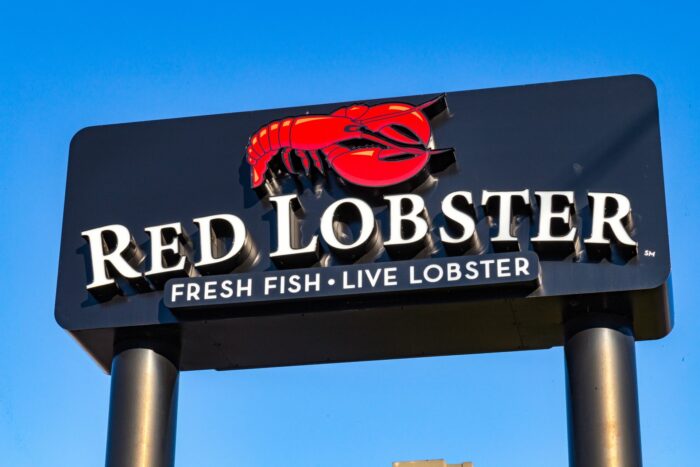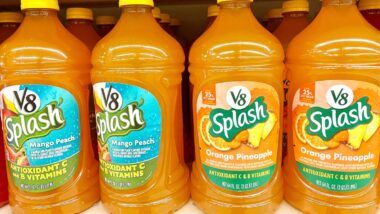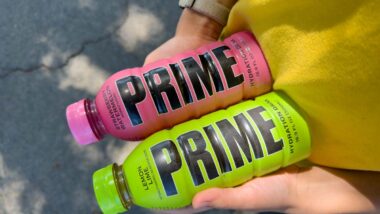Top Class Actions’s website and social media posts use affiliate links. If you make a purchase using such links, we may receive a commission, but it will not result in any additional charges to you. Please review our Affiliate Link Disclosure for more information.

Red Lobster lies about the sustainability of its shrimp and lobster — which comes from environmentally harmful and inhumane suppliers — misleading consumers and causing them, the animals, and the environment harm, a new class action lawsuit alleges.
The class action lawsuit was filed in California on June 11 by lead Plaintiff Dezzi Rae Marshall, who alleges that Red Lobster and its affiliates engaged in deceptive marketing and sale of its Maine lobster and shrimp products as “sustainable,” when they may be sourced from suppliers that use environmentally harmful and inhumane practices.
According to the claim, Red Lobster’s Maine lobsters are sourced from suppliers that use environmentally destructive practices that threaten endangered populations of North American right whales.
Furthermore, its shrimp items are sourced from industrial shrimp farms that do not employ the highest environmental or animal welfare standards, the claim states. It adds that Monterey Bay Aquarium Seafood Watch recommends that consumers seeking sustainable seafood should not choose shrimp from the regions that Red Lobster sources from, because of environmentally destructive practices, poor reporting of environmental data and standards, and overuse of antibiotics.
“Moreover, Red Lobster shrimp suppliers use inhumane practices including routine eyestalk ablation, a practice in which the eyestalk gland of female shrimps is crushed, burned, or cut off—without painkillers—in order to increase reproduction,” the claim states.
Due to concerns about sustainability, consumers are increasingly concerned with how their food is produced and Red Lobster capitalized on consumer demands for sustainably sourced seafood that follows high environmental and animal welfare standards, the claim says.
“Red Lobster also knows that consumers will pay more for such products than they will for products sourced from suppliers that use unsustainable, environmentally harmful, and/or inhumane practices, or will purchase more of the products they believe to be sustainably sourced.”
To capture this growing market, Red Lobster makes prominent marketing claims on its restaurant menu that its menu items are sustainable, for example stating on the cover of Red Lobster’s menu “SEAFOOD WITH STANDARDS” and “Traceable. Sustainable. Responsible.”
Reasonable consumers who see Red Lobster’s Sustainability Representations would expect that the products are sourced sustainably in accordance with the highest environmental and animal welfare standards, the class action lawsuit says.
That was the case for Marshall, who ate at Red Lobster thinking that the shrimp and lobster she was buying was sustainably caught, “and thus, were not sourced from suppliers that use environmentally harmful and inhumane practices.”
The Gulf of Maine lobster fishery, where Red Lobster gets its lobster from, has been found to frequently kill and injure marine mammals, including whales, in its fishing practices, the claim states. The restaurant sources its shrimp from farms in Indonesia, Vietnam, India, and China, which utilize unsustainable and inhumane high-density industrial farming methods to increase production, it adds.
According to the class action lawsuit, the farms contribute to mangrove destruction and environmental degradation, and “poor water quality on farms in these regions causes high levels of stress to the shrimp who ‘struggle to breathe.’
“By deceiving consumers about the nature and sourcing of the Products, Red Lobster has sold a greater volume of the Products, been able to charge higher prices for the Products than otherwise, and has taken away market share from competing products, thereby increasing its own sales and profits,” the claim states.
Marshall wants to represent anyone in California who bought shrimp or lobster at Red Lobster. She is suing for violations of California consumer and advertising laws and seeks certification of the Class, damages, order of enjoinment, legal fees, and a jury trial.
Do you eat at Red Lobster? What are your thoughts on the sourcing of their seafood? Let us know in the comments section!
Marshall is represented by Matthew Strugar of Law Office Of Matthew Strugar and Jay R. Shooster of Richman Law & Policy
The Red Lobster False Advertising Class Action Lawsuit is Marshall vs. Red Lobster Management, LLC, et al., Case No. 2:21-cv-04786, in the U.S. District Court Central District of California.
Don’t Miss Out!
Check out our list of Class Action Lawsuits and Class Action Settlements you may qualify to join!
Read About More Class Action Lawsuits & Class Action Settlements:















109 thoughts onRed Lobster Lies About the Sustainability of Its Shrimp, Lobster, Class Action Lawsuit Claims
Please add me
Please add me . I suffer from food allergies and was not aware or informed of n e of this . I will never go to Red Lobster again !! My husband n I use to take his Great Aunt there once a week .